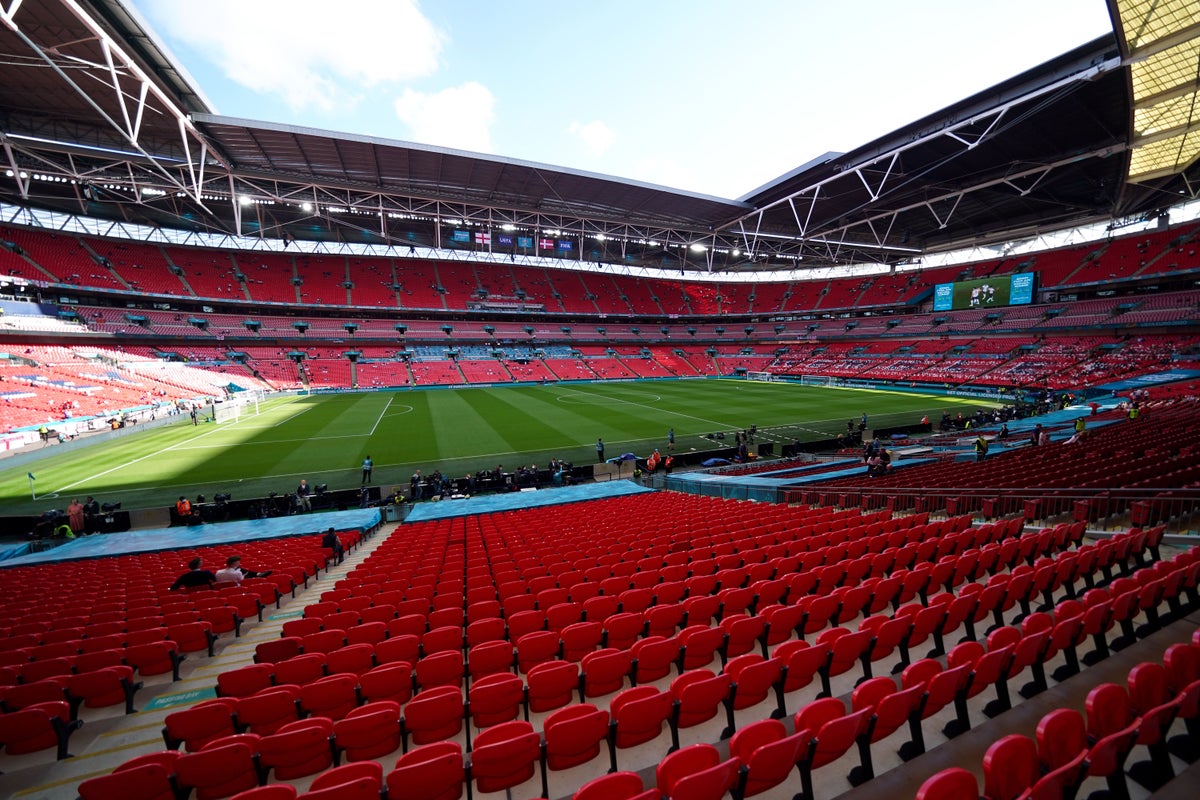
The Football Association’s second annual report on the Football Leadership Diversity Code has shown English clubs are failing to meet its pledged targets.
All Premier League teams and 32 English Football League clubs have signed up to the code, which was introduced in 2020 to increase equality of opportunity and encourage recruitment of diverse talent across senior leadership teams, team operations and coaching set-ups.
While the FA, Premier League and EFL produced strong results and exceeded in seven of the eight targets for the 2021-22 campaign, the clubs signed up to the code saw a drop-off, in particular in the number of senior management hires for both female and black, Asian and mixed heritage candidates.
Just 10.3 per cent of the candidates hired for senior leadership roles at clubs came from black, Asian or mixed heritage background, which dropped below the 15 per target.
The three governing bodies of English football hit that and also ensured 38.5 per cent of their new recruits were female.
Clubs again dropped below that 30 per cent target with an average of 17.2 per cent.
A disappointed trend occurred in terms of coaches hired by men’s club with 15.6 per cent from black, Asian or mixed heritage background, below the 25 per cent aim, but a more positive result occurred in the number of senior coaches recruited.
The target of 10 per cent was met with 21.2 per cent of senior coaches hired either black, Asian or mixed heritage.
Kick It Out’s Sanjay Bhandari said: “The results on recruitment of black, Asian and mixed heritage coaches in both the men’s and women’s game, and the achievement of targets by the football authorities, are encouraging.
“There is also plenty of room for improvement in other areas such as senior leadership and the recruitment of female coaches.
“Two years into the process, now is a good time for pause and reflection across the industry, to share learnings and best practice. Collectively, that will enable us to increase the pace of change.”
Women clubs also failed to hit their 50 per cent target that all new coaches hired would be female (33.3 per cent).
But WSL and Women’s Championship teams did see 15.3 per cent of their recruits come from black, Asian or mixed heritage backgrounds, therefore reaching the 15 per cent pledge.
The pledges for team operation roles also failed to hit the intended target.
Only 13.5 per cent of the new hires for team operation roles were black, Asian or mixed heritage, falling below the 15 per cent aim, and 30 per cent of new recruits being female also failed to be hit (28.6 per cent).
Mark Bullingham, the FA’s chief executive, added: “I would like to thank everybody involved for supporting the Football Leadership Diversity Code, as part of a collective desire to create meaningful change.
“This year shows some signs of progress, with a shift in recruitment processes that will start to change the game and the three governing bodies exceeding seven out of eight targets.
Two years into the process, now is a good time for pause and reflection across the industry, to share learnings and best practice. Collectively, that will enable us to increase the pace of change.— Kick It Out chair Sanjay Bhandari
“However, while we saw clubs exceeding diversity targets for senior coaches in the men’s game and coaches in the women’s game, there is still a huge amount of work to be done across the game.
“We understand that substantive change will take time, but a number of clubs have already made progress, and we expect to see more clubs follow that lead in years to come.”
While the Premier League, FA and EFL hit their targets in seven of the eight categories, the collective football average met just two pledges – 10 per cent of new senior coaching hires by men’s clubs being black, Asian or mixed heritage and 15 per of new coaches recruited by women’s teams being black, Asian or mixed heritage.
“The Premier League fully supports the Football Leadership Diversity Code as we collectively work to achieve greater diversity across all areas of the game,” chief executive Richard Masters said.
“Over the past two years, the code has represented an important commitment from across football to tackle inequality and create long-term change.
“We are pleased to be making progress but there is still much more to be done to ensure there are opportunities at all levels of the workforce – this remains a priority for us.”
EFL chief executive Trevor Birch added: “The EFL has made a number of strategic developments to its Equality, Diversity and Inclusion (EDI) operation, to help make the EFL and its clubs more reflective and representative of the communities in which we serve.
“During that period, the EFL has seen a rise in both female and Black, Asian or mixed heritage employees recruited.
“While this is a step in the right direction, the league is committed to further diversifying its staff base, ensuring everyone has the same opportunity to succeed across the EFL. We will also continue to work collaboratively with clubs and partners to improve our game, together.”







